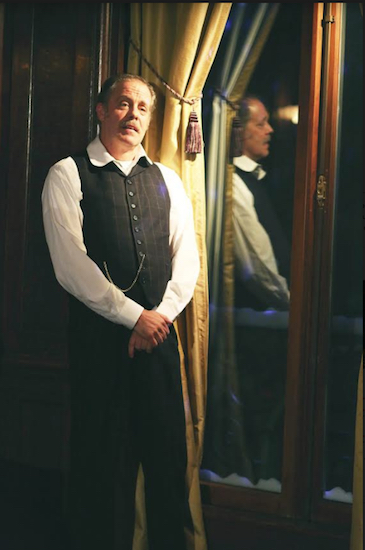Noted writers adapt James Joyce classic to interactive theater

The heart and soul of great stories, first written and published in books, can find a glorious renewal in spoken words on a stage. Such was the case with the classic short story, “The Dead,” written by James Joyce and originally published in 1914 as the last piece in one of his most popular books, “The Dubliners.” Two acclaimed contemporary writers, one of whom founded a high-quality book club that often meets in Brooklyn, crafted a unique and interactive Joycean theatre experience that is staged over three floors of a Victorian mansion.
Pulitzer Prize-winning poet Paul Muldoon is one of the story’s adaptors. He was born in Northern Ireland and has worked as a professor of poetry at Oxford University, poetry editor at The New Yorker and author of 12 major collections of poetry. Muldoon is the recipient of several awards, including a Guggenheim Fellowship and an American Academy of Arts and Letters Award in Literature. He has been described by critics as “the most significant English-language poet born since the second World War,” and has also been compared to Yeats.
Muldoon moved to New York City with his wife, novelist Jean Hanff Korelitz, who helped to adapt the short story for the theater. Korelitz was born and raised in New York City and attended Dartmouth College and Clare College in Cambridge. She is the author of seven novels and a collection of poetry. Korelitz founded the group Book The Writer, which is a service that offers Pop-Up-Book-Groups where books can be discussed with their authors.

Brooklyn Boro
View MoreNew York City’s most populous borough, Brooklyn, is home to nearly 2.6 million residents. If Brooklyn were an independent city it would be the fourth largest city in the United States. While Brooklyn has become the epitome of ‘cool and hip’ in recent years, for those that were born here, raised families here and improved communities over the years, Brooklyn has never been ‘uncool’.